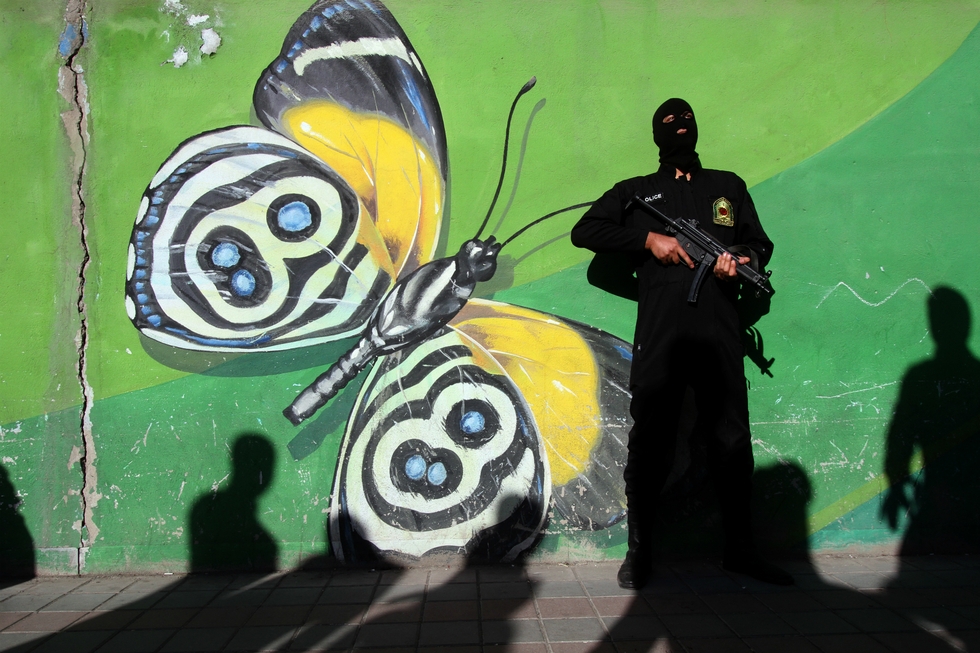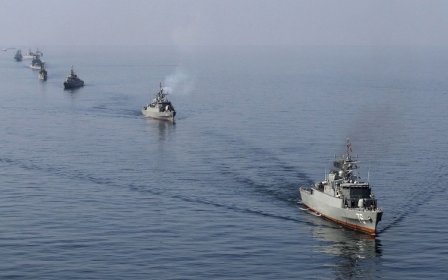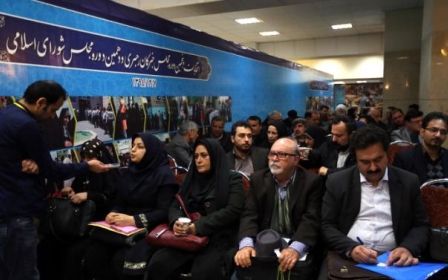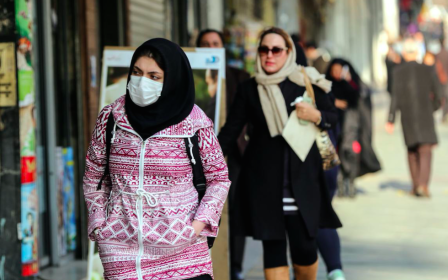Guns, threats and bomb checks: Tehran's new reality

TEHRAN - At the entrance of a subway station in central Tehran, armed men in black uniforms check bags and briefcases they believe suspicious. Commuters calmly go about their business, and cooperate, but the presence of members of Iran's "special unit" security force betrays a new reality in the Iranian capital.
The "special unit" has been patrolling the streets of the capital since early December, following several threats from the Islamic State group and the events in Paris in November, where IS members killed 130 people in devastating synchronised attacks on three locations.
Iran knows it is a target, supporting Bashar al-Assad in the Syrian civil war, training militias in Iraq and facing accusations of supporting the Houthi movement in Yemen. IS, known as Daesh among Iranians, considers Shia Iran an enemy.
That international position has translated to tight security and regular warnings of domestic attacks - specifically on public transport - and, while Tehranis have voiced their fears, they have come to accept the measures. Pollution in the city appears to be a bigger concern.
Mojtaba Bozorgzade, a professor at Islamic Azad University, told Middle East Eye: “I’m really thankful to our security forces, because the safety we have in Iran is because of their efforts. That is why, every time I have faced security forces, I have co-operated with them, and allowed them to inspect me.”
Sara Pourahmadi, a history student at Tehran University told MEE: “When I heard the new IS threats against my country after the Paris carnage, I wasn’t terrified at all, I could guess the armed forces would be put on alert.”
The heightened security programme was announced publicly on 28 November - two weeks after Paris - when Tehran's police chief General Hossein Sajedinia announced his force had been holding anti-terrorism training to prepare for any possible threats.
Special units, the rescue unit, bomb disposal units and plain-clothes officers were all involved in these exercises, Sajedinia said.
A history of violence
It is not the first time Tehran has faced such threats, however.
Last year, Iran’s intelligence ministry said it had foiled plots to attack the capital during the lunar month of Muharram (October 15- November 12), when Shia mark the death of Hussein ibn Ali, the grandson of the Prophet Muhammad, in the Battle of Karbala.
The Iranian army was placed on high alert as IS swept across northern Iraq and threatened to reach border areas with Iran.
General Ahmad Reza Pourdastan, a commander in Iran's army, said it had drawn a red line 40km inside Iraqi territory - if that was crossed, "the army [is] fully prepared to counter them".
“We made them understand that if they crossed that red line, they would face a crushing response from the Iranian armed forces," he said. "We noticed that the Takfiri terrorists had received our message and left the area immediately."
That confidence is shared across the political and military in Iran.
Heshmatollah Falahatpishe, a former politician, told MEE: “Iran’s security forces have managed so far to foil the terrorists’ attacks inside Iran. They have captured operators and have extracted good information from them.
"The terrorists’ actions outside of Iran’s borders are under our surveillance. Unlike the past year when IS was close to our borders, they are now far from us."
But what of fears of a Sunni "fifth column" inside Iran? Media commentators say IS has been largely unsuccessful in its recruitment efforts, and a small number of Iranian Sunnis have fought against IS in Syria.
Shima Islamiczade, a language teacher in Tehran, told MEE: “I may be a little anxious about IS attacks inside Iran, but I’m sure that the terrorists won’t be able to use Sunni Iranians to do a suicide attack inside Iran. All of our Sunnis in Iran are peaceful, and fortunately we have no Wahhabi in Iran.”
Still, and despite that confidence, the commander of Tehran’s police Sajedinia says the current security measures "will go on as long as necessary".
New MEE newsletter: Jerusalem Dispatch
Sign up to get the latest insights and analysis on Israel-Palestine, alongside Turkey Unpacked and other MEE newsletters
Middle East Eye delivers independent and unrivalled coverage and analysis of the Middle East, North Africa and beyond. To learn more about republishing this content and the associated fees, please fill out this form. More about MEE can be found here.




